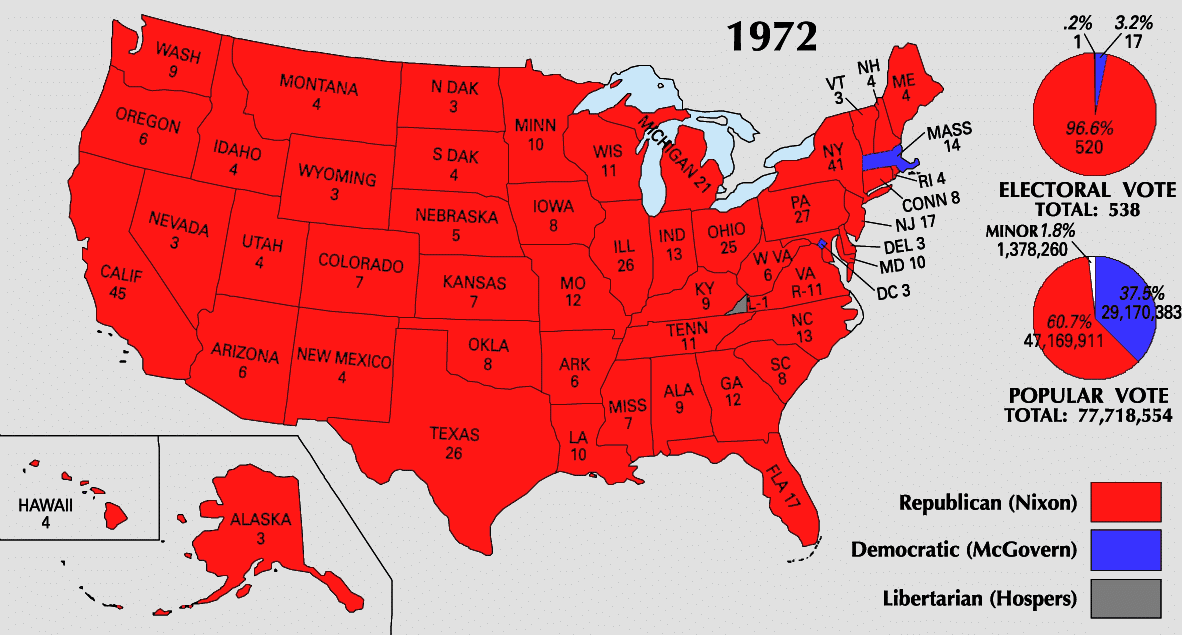The Presidential Election of 1972 would be another sweeping victory for the Republicans.

President Richard Nixon was a popular incumbent President as he had achieved the re-opening of China and detente with the Soviet Union. It would be the first time in decades that the Cold War seemed to be at a pause, and peace or coexistence would be possible.
He also had success in the area of civil rights and de-escalating the Vietnam War.
The Democrats were still suffering from a bad reputation that was left by Lyndon Johnson and had a big hill to climb if they wanted to be successful.
The candidates were as follows:
- Republicans: Richard Nixon and Vice President Spiro Agnew (Would be replaced with Gerald Ford)
- Democrats: George McGovern and Vice President Sargent Shriver
Platforms
Republicans: President Richard Nixon ran on his record of re-opening China, detente with Russia, de-escalating Vietnam, and a booming economy. However, there seemed to be some evidence of corruption within Nixon's cabinet, which would come to a head during the campaign with his Vice President Spiro Agnew. Agnew was linked to conspiracies and was replaced by Gerald Ford as the Vice President candidate. With the replacement, Nixon continued to build much momentum throughout the campaign, and his policies seemed favorable to Americans.
Democrats: George McGovern ran on a platform of immediately ending the Vietnam War and instituting guaranteed minimum incomes for the nation's poor. His campaign was harmed by his views during the primaries (which alienated many powerful Democrats), the perception that his foreign policy was too extreme, and the Eagleton debacle. With McGovern's campaign weakened by these factors, the Republicans successfully portrayed him as a radical left-wing extremist incompetent to serve as president.
Results
Richard Nixon won the election of 1972 in a landslide.
Nixon's percentage of the popular vote was only marginally less than Lyndon Johnson's record in the 1964 election, and his margin of victory was slightly larger. Nixon won a majority vote in 49 states, including McGovern's home state of South Dakota.
Only Massachusetts and the District of Columbia voted for the challenger, resulting in an even more lopsided Electoral College tally. McGovern garnered only 37.5 percent of the national popular vote percentage, the lowest share received by a Democratic Party nominee since John W. Davis won only 28.8 percent of the vote in the 1924 election.
However, 5 months prior to election day, the news of Watergate became known, and it looked as if Nixon would be implicated. Despite his large margin of victory and booming economy, the Republican's reputation would begin to suffer.
